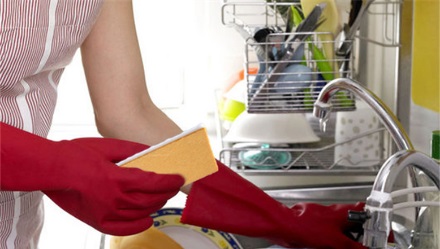Decreasing electricity consumption for detergent production in Kosovo

Investor
A producer of kitchen utensils, clothes, glasses and body showers

Location
Pejë, Kosovo

Investment
Two new duplicators with improved insulation and automatic control

Investment Size
€13,750

Financial results
Payback period of 5.1 years; cost savings of €2,694 per year; IRR of 22.7%

Energy savings
70%

Water savings
56%

CO2 savings
26.8 tonnes of CO2 per year

Donor
EU, Norway

This company produces kitchen utensils, clothing and body showers, offering more than 100 different products to its customers. Over the last few years it has increased production of detergents, mainly deployed for kitchen utensils, clothes and porcelain.
To reduce its excessive electricity consumption and maintenance costs, the company planned to invest in two new energy efficient duplicators. The company addressed KoSEP for loan financing of this project.
The KoSEP team supported the company with analysis of the proposed technologies, in particular, the potential for energy savings, the financial-technical parameters and risks.
The €13,750 investment allowed the company to decrease its energy consumption by 70 per cent and water consumption by 56 per cent, translated into the cost savings of €2,694 per year. Therefore the investment will be repaid out of energy savings in 5.1 years, turning the new cash-flow into company income for years to follow. In addition, the company decreased its CO2 emissions by 26.8 tonnes per year, contributing to the mitigation of the negative effect of human activity on the climate.
Such business investment examples not only stimulate people to improve their quality of life, but nurture a culture of a wise and careful attitude to environment and its resources.
The EBRD, through KoSEP, supports the sustainable financing and implementation of energy efficiency and renewable energy projects by the private sector. Together, the private, residential, and public sectors can make a change in energy consumption patterns and contribute to environmental protection.
This project was supported by the European Union (EU) and the Norwegian Ministry of Foreign Affairs.



